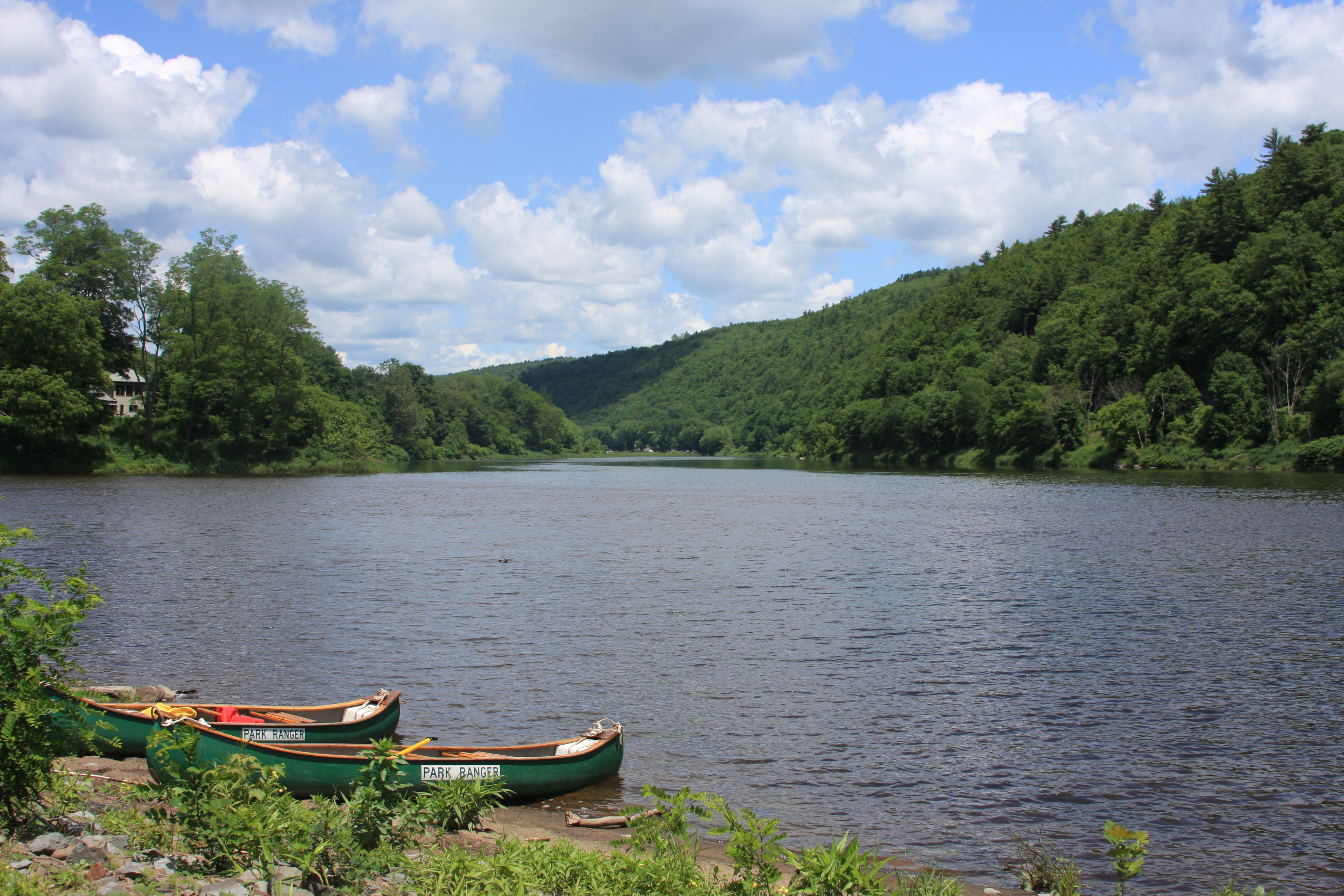- Degrees
- Students
- Programs
- Research
- About
Parks, Recreation & Tourism Management Minors

Add a PRTM Minor to Your Degree.
Many of the skills you learn in our undergraduate degree programs are also transferable to different industry contexts.
Clemson University students in any undergraduate program can also choose a Clemson PRTM minor to supplement their learning. For example, our minor options are popular with students taking business, education, marketing, forestry and wildlife, international relations, language and psychology, among others.
Read about our undergraduate minors in nonprofit leadership, parks and protected area management, travel and tourism, and youth development studies to find the option that helps you reach your career goals.
Nonprofit Leadership

The nonprofit leadership minor and certificate prepares and trains Clemson students for leadership positions in the expanding nonprofit sector through an 18-credit online program.
The program is designed for Clemson students to achieve core nonprofit competencies that will enhance their career opportunities in a variety of nonprofit fields.
-
About the Minor
A recent study by the Georgetown University Center on Education and the Workforce found that the pursuit of post-secondary training is skyrocketing as people from all walks of life are seeking to increase their credentials, income and job status.
Students in the nonprofit leadership minor and certificate program benefit from real-life examples and practical scenarios used by faculty to illustrate concepts and principles in the nonprofit world.
Faculty members have extensive experience in the management and administration of nonprofit organizations, bringing a depth of experience and expertise to the online virtual classroom. The online courses provide flexibility to students who need an alternative to traditional in-class schedules.
-
Program Requirements
Students must complete 18 credits as outlined below to receive the NPL minor or certificate.
NPL 3000: Foundations of Nonprofit Leadership is a prerequisite for the other courses. With the exception of NPL 4900 (preceptorship), all courses are offered in a half-semester, online format and are offered each semester. NPL 3000 and 4900 are offered during summer sessions as well.
- NPL 3000 – Foundations of Nonprofit Leadership (3)
- NPL 3010 – Understanding Stakeholders for Nonprofit Organizations (3) or NPL 3050 – Strategic Social Media for Nonprofit Organizations (3)
- NPL 3020 – Funding and Accountability in Nonprofit Organizations (3)
- NPL 3030 – Personnel Leadership in Nonprofit Organizations (3)
- NPL 3040 – Risk Management of Nonprofit Organizations (3)
- NPL 4900 – Preceptorship in Nonprofit Leadership (3)
Please note that credits for NPL 3020, NPL 3030 and NPL 3040 may not be substituted for courses in Finance, Management, or Law.
Course selections must be made in consultation with your academic advisor.
-
Preceptorship
The NPL 4900 Preceptorship course adds an additional element of hands-on experiential learning in which a student interns with a local nonprofit organization, applying theory to practice and gaining valuable on-the-job experience.
Under the guidance of a qualified professional supervisor, you will apply theories, concepts, philosophies and techniques acquired in the classroom. In order to maximize your professional development, the Preceptorship should encompass as many operation and management aspects of the cooperating agency as possible.
Resources
-
Find Out More
For more information about the Nonprofit Leadership minor or certificate, please contact:
- Lane Glaze, Online Programs Coordinator
- Corey Brookover, NPL Preceptorship Coordinator
Park and Protected Area Management

Clemson’s Park and Conservation Area Management academic program is widely recognized by land management professionals and other universities as a top program in the country. Our minor is no different.
Our curriculum helps you develop skills for an exciting career managing parks and conservation areas—that is what we do. Our graduating students help manage some of the most iconic parks and wilderness areas across the world because they developed the necessary skills at Clemson University, and by working with the Clemson University Institute for Parks, the Parks Solutions Lab, the Virtual Reality and Nature Lab, and Tigers United.
Also, because we address the management of cultural and historic resources along with biological resources in parks, our students have broader skills than other students making them more competitive in the career market.
-
About the Minor
Explore parks, wilderness areas and public lands management from a holistic perspective.
Classes in the Park and Protected Area Management minor will introduce you to natural resource management, visitor use management, natural and cultural interpretation, and park policy and planning.
-
Program Requirements
A minor in Park and Protected Area Management requires:
Students are also required to take nine credits selected from the following 3-credit course options:
Course selections must be made in consultation with your academic advisor.
-
Find Out More
For more information about the Travel and Tourism minor, please contact:
- Matthew Brownlee, Park and Conservation Area Management Concentration
- Daniel Anderson, Advisor/Coordinator, Undergraduate Student Services
- Lauren Duffy, Coordinator, PRTM Undergraduate Program (for curriculum questions)
Travel and Tourism

Do you love to travel? Have you dreamed of working in places that people want to visit? Are you curious about why people travel, how to manage travel experiences, special events and festivals, and the impacts of travel and tourism to the places you visit or live?
If yes, a minor in Travel and Tourism in the Department of Parks, Recreation and Tourism Management will prepare you for a career in the billion dollar global tourism industry.
The Travel and Tourism minor is an excellent complement to liberal arts, trade, international relations, language and business majors.
-
About the Minor
The tourism industry has become one of the major impacts on the quality of life of travelers and residents in rural areas, small towns, cities, states and countries. The Travel and Tourism minor is designed for Clemson University undergraduates to take a range of courses that provide a baseline understanding on the planning, marketing, management and impact of tourism.
The flexibility built into the minor allows students to select courses that complement their major and explores specific interests of travel and tourism in our society. All majors are welcome.
-
Program Requirements
A minor in Travel and Tourism requires:
Students are also required to take three credits selected from the following 3-credit course options:
Students are also required to take six additional credits selected from the following 3-credit course options:
- PRTM 3090 – Behavioral Concepts in Parks, Recreation and Tourism
- PRTM 3300 – Visitor Services and Interpretation
- PRTM 3430 – Spatial Aspects of Tourist Behavior
- PRTM 3440 – Tourism Markets and Supply
- PRTM 3460 – Heritage Tourism
- PRTM 3470 – Sport Tourism
- PRTM 3490 – Survey of Tourism Sites
- PRTM 3920 – Special Event Management
- PRTM 3910 – Selected Topics (changes each semester)
- PRTM 3920 – Special Events
- PRTM 4300 – World Geography of Parks and Equivalent Reserves
- PRTM 4410 – Commercial Recreation
- PRTM 4440 – Tour Planning and Operations
- PRTM 4450 – Conference/Convention Planning and Management
- PRTM 4460 – Community Tourism Development
- PRTM 4470 – Perspectives on International Travel
Course selections must be made in consultation with your academic advisor.
NOTE: This minor is not open to Parks, Recreation and Tourism majors.
-
Find Out More
For more information about the Travel and Tourism minor, please contact:
- Charles Chancellor, Travel and Tourism Concentration
- Daniel Anderson, Advisor/Coordinator, Undergraduate Student Services
- Lauren Duffy, Coordinator, PRTM Undergraduate Program (for curriculum questions)
Youth Development Studies

Today’s youth are dynamic, challenging, diverse, and teeming with potential. Our communities need to accept responsibility in fostering their success and preparation for a successful adulthood. A youth development leader who wants to facilitate the development of this age group must be able to advocate effectively in the community for youth and create opportunities for their success.
The PRTM undergraduate minor in youth development studies is designed for students interested in developing specialized knowledge related to working with youth, families and communities. This minor could greatly benefit students who plan to work with youth in schools, sports, medical settings, after school programs, camps, juvenile justice, residential treatment, nonprofit settings or if you plan to pursue a graduate degree.
-
About the Minor
This undergraduate minor program provides the knowledge and skills to build, design, deliver and evaluate relevant youth programs and experiences and collaborate successfully with educational institutions, community agencies and organizations, and business and corporate partners.
Students are required to attend a weekly synchronous class in Zoom for 90 minutes (see class schedule for time).
-
Program Requirements
The Youth Development Studies Minor requires successful completion of five (5) three-credit online* courses for a total of 15 credit hours. All courses are seven weeks long (half of a semester using the First Term and Second Term scheduling). Each course requires participation in a weekly synchronous meeting in Zoom.
First, select one (1) three-credit YDP hour course from each of the areas listed below (Foundations, Systems/Context, and Programming):
Youth Development Foundations (Select ONE of these courses)
Youth Development Systems/Context (Select ONE of these courses)
- YDP 3100 – Youth Development and the Family
- YDP 3150 – Community and Youth Development Systems
- YDP 3200 – Youth Development in Sport and Physical Activities
Youth Development Programming (Select ONE of these courses)
- YDP 3250 – Working with Diverse Youth
- YDP 3350 – Youth Activity Facilitation and Leadership
- YDP 3400 – Delivering Effective Youth Programs
- YDP 3450 – Creative Activities for Youth
- YDP 3500 – Youth Development and Mental Health
Second, select any two (2) additional YDP courses to earn the 15 total credits needed for the Youth Development Studies Minor.
-
Find Out More
For more information about the Youth Development Studies minor, please contact:
- Dr. Barry A. Garst, Youth Development Studies Program Coordinator
